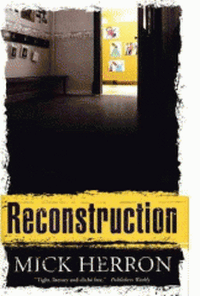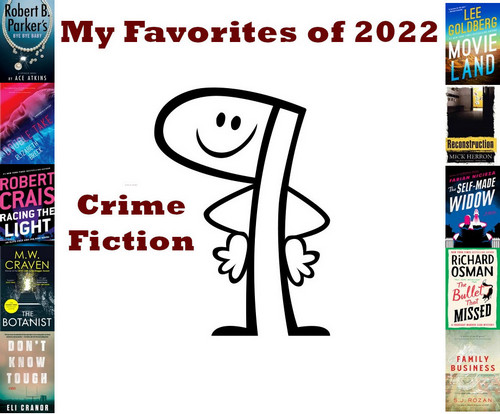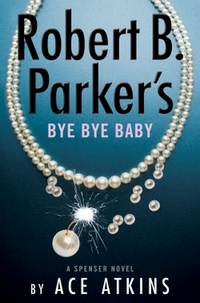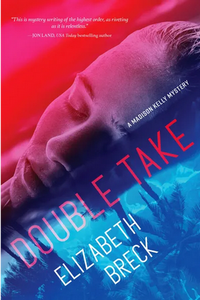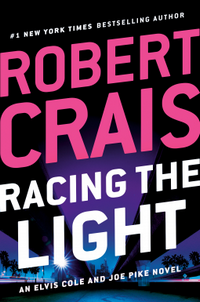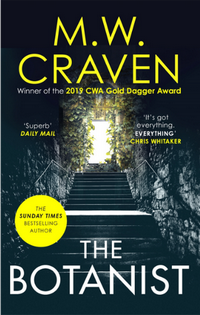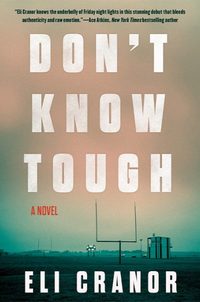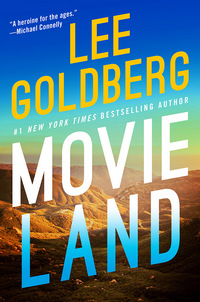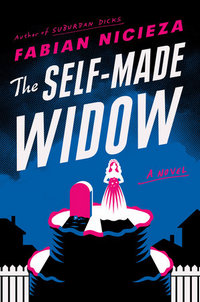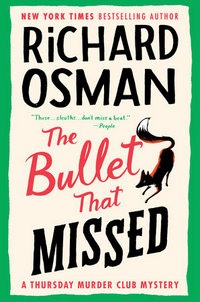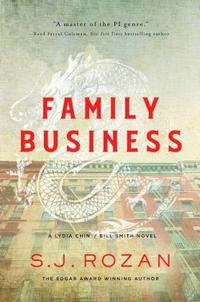by Mick Herron
DETAILS:
Publisher: SohoConstable
Publication Date: February 1, 2008
Format: Hardcover
Length: 352 pg.
Read Date: January 21-26, 2022


Memory plays tricks, everyone knows that: it shuffles the deck, charms the snake, hoists the rope into nowhere. It convinces you you know just where you were, what you were doing, then whap, the detail betrays you. Reconstruction is never simple. Two days from now, a grainy, after-the-event newspaper photo will show Jaime Segura wearing the jacket he’s wearing now, and it’s not a dark green bomber at all: it’s brown, it’s faux-leather; it has long sleeves turned up at the cuffs, and drops to mid-thigh. George Trebor will look at that picture and wonder how much else of what he remembers actually happened, and how much was simply processed by a mind taught, like everyone else’s, to join the dots. Nobody studies events every second that passes. Like speed cameras, we take one picture, then another; and allow the data gathered by experience to fill the gaps.
And, like speed cameras, sometimes there’s no film in the machine.
Oops
I knew I should’ve written this post before I talked about this book on the Barbican Station podcast, I’ve been struggling to write this since—I’ve lost the impulse, having said just about everything I can think of about the book.
But I’m about to run out of renewals at the library, so I’d better get something done.
What’s Reconstruction About?
On the surface, this is a story about an inadvertent hostage situation. A young man, Jamie Segura, is told that if something happens to his boyfriend, he’s to go to a nursery school in Oxford and find a lady there who can help him understand. Which is what he does.
On the way to the school, through circumstances far beyond his control, Jamie picks up a gun. So when he shows up at the school, he gets the attention of those present—one of whom, the teacher, shows a remarkable amount of presence of mind and locks the place down, so that no more people can be stuck inside with him—it’s just the aide who cleans up the place, this teacher and one father with his twins. Louise’s quick thinking keeps the other staff, parents, and students away.
In addition to the instruction to find the lady at this school, Jamie has a name, Ben Whistler. Whistler worked with Segura’s boyfriend, they both are accountants for MI6. Not really the kind of guy you want in a hostage negotiation, but when he’s the one man the hostage-taker will talk to, you make do.
As the novel progresses, we learn what brought each of the people to the school that morning—their motivations, their past, and their very tenuous present are peeled back and exposed (mostly for the reader, but some for them)—while we also see what happens from the time Whistler arrives. This novel is like an onion—or an ogre—each time you pull back a bit and reveal something, you discover there’s a lot more you need to discover. For me, the structure is reminiscent of Hawley’s The Fall but in a more compressed time—and perhaps more effectively told. But now I’m clearly out of things to say describing what happens and have started talking about the book in an evaluative way, so I’d better move on to the next heading.
The Gun
She’d never been this close to a gun—stupid: nobody had ever been this close to a gun; nobody with a normal life and ordinary aspirations. Eliot’s boys were crying, but that seemed a long way distant; much closer was the gun itself, which was this side of the railings now. While Louise gazed into its mouth, the boy holding it—the only one among them on his feet—closed the gate. That, at least, was normal; everything else had rattled free of its holdings, scattering reality around her like spring rain.
One of the things that really grabbed my attention early on was during the hostage situation was that the attention wasn’t on Jamie Segura, but on the gun he was holding. It’s all about the gun—at the moment, Louise probably couldn’t have described him at all, he’s a boy, that much she’s got, but nothing more. She’s not alone there, the others are in the same boat—the gun is what’s important, the gun is essentially personified.
That’s such a great choice. The reader is focused on the gun so easily, just like Louise and the others. Really, at that moment—even the reader isn’t that concerned with knowing anything about Jamie, just what’s he going to do with the gun. Later, once Ben Whistler arrives and starts to get Jamie to open up a little, then our attention and interest shift to him, as they ought. But that’s secondary.
Later in the novel, there are other guns that are important—but that, too, is for later. And even then, they’re not focused on the way this gun is, because we know the people behind them (largely) and what they’re going to be used for.
The Prose/Narrative Voice
‘Are you an only child?’
‘Am I a what?’
‘Do you have brothers or sisters?’
‘What’s that got to do with—no. No, I don’t. Do you?’
‘Second of four. All boys.’
‘Well, that explains your ease with women.’
‘Probably accounts for my competitive nature, too. I’ve never liked coming second.’
‘Is there a point to this?’
‘Something I’ve noticed about only children. They have a tendency to think events revolve around them.’
We meet the narrator of this very early on—at the same time they tell us they’re not going to be around anymore (they might have 2 sentences total where they mention themselves). So we know that this isn’t some sort of neutral or omniscient third-person. There’s a human involved in telling this story, but we know precious little about them. But it does add some color to the reader’s experience.
The novel is told in a wry, detached sort of humor—but there’s nothing funny going on. It’s very strange—it’s not a comic thriller, those contain things you’re supposed to laugh at, actually funny moments. This is told like that without any humor. Individual phrases, sentences, paragraphs—even a couple of paragraphs are funny if you read them out of context. There’s a lot of wit involved in the way the words are assembled. But in context, nothing’s funny. It’s deadly serious, and even the wry narrative comment or three doesn’t relieve the tension–if anything it ratchets up the tension.
I don’t know how Herron pulled it off. I really don’t. I spent time re-reading passages trying to see if I could figure it out. And I just can’t. It’s the kind of thing where I see it in action, admire it and then have to move on.
What Exactly is Being Reconstructed?
I don’t spend too much time thinking about titles to books, really. I’ll think about “The 2019 X Character book” or “The Y Writer Stand-alone about Z” with a vague idea about when I read it—if I need the title, well, that’s what my spreadsheets and Goodreads are for.
But every now and then, a title will stick in the back of my head as I read a book—this is one of those cases. What could Reconstruction be referring to? The rebuilding of post-war Iraq? The police (or someone else) taking all the evidence around the hostage situation and putting together how it happened? The narrator taking in everything and putting it together in a way the police can’t? or…I have a list of around a dozen guesses. I’m pretty sure at least half of them are defensible. Like the layers of story and character that Herron peels back, there’s a lot to think about in just the title.
So, what did I think about Reconstruction?
…today is either the first day of the rest of your life or the last day of your old one, depending on how things work out. It’s Tuesday, April 3rd. The weather’s set for fair. Sunlight has already reached the bedspread, drawing upon it a range of shadow mountains whose outcrops and valleys exactly match the folds and ridges of the curtaintops. It’s time to get up. It’s time to get up.
The book opens with (almost) all of the characters waking up, going about their normal business not knowing if today is the first day of the rest of their life or the last day…all they know is that they have to get up and do some things. Then The Gun (and the poor, scared young man holding it) show up at the nursery school, and everything changes.
I’ve read and listened to Slow Horses, and while I enjoyed it, I’ve yet to move on in the series (I’m not sure I can explain why). But this book turned me into a Mick Herron fan—it’s going to be one of those books I’m thinking about for a long time to come. (and the more I think about it, the more I like it)
It took me a little bit to settle in—but even before I did, I was loving the prose and narration. Once Herron finished setting things up and introducing characters and starts letting them just do what characters do, I was hooked. From the surprising and horrific image (and sound!) of a car striking a man running out in front of it, through the events at the nursery, to the jaw-dropping last page—and killer last line. This is a great read.

This post contains an affiliate link. If you purchase from it, I will get a small commission at no additional cost to you. As always, opinions are my own.


![]()


